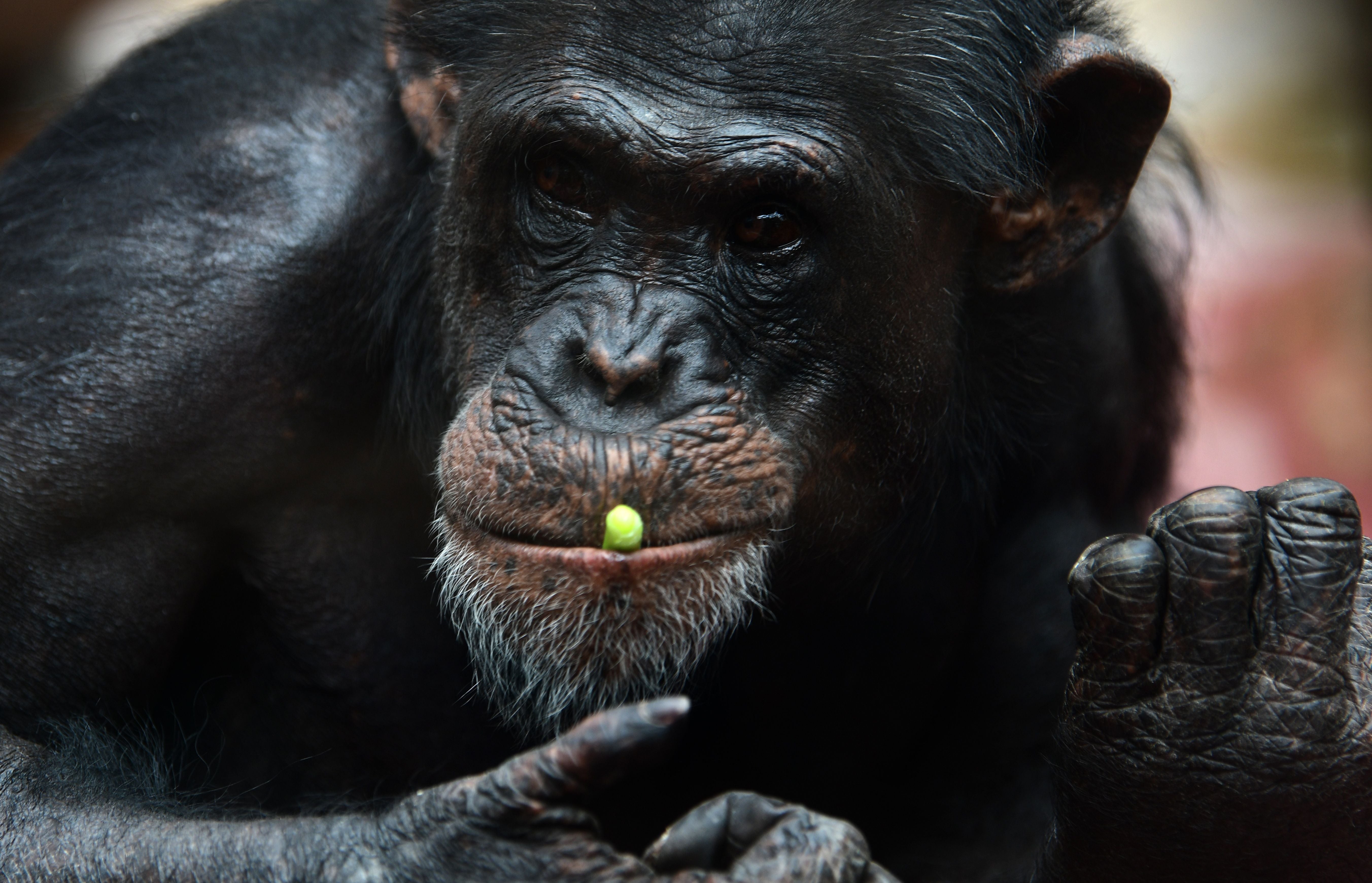Newly discovered bacterium linked to fatal chimp disease could jump to humans, research suggests
Chimpanzees at the Tacugama sanctuary in Sierra Leone had been suffering unexplained deaths for more than a decade

A disease that has killed dozens of chimpanzees at a sanctuary in Sierra Leone may pose a risk to humans.
The newly-discovered bacterium linked to the fatal illness was reported for the first time in the journal Nature Communications this week.
Since 2005, some 56 Western chimpanzees, which are critically endangered, have died from an unknown sickness at the Tacugama sanctuary. Bizarrely, the disease only impacted chimps at the sanctuary.
It began with chimps suffering neurological problems, vomiting and having diarrhoea. Chimps went from being healthy to staggering around with bloated stomaches. The illness resulted in death even after medical treatment.
An international research team investigating the unknown illness named it “epizootic neurologic and gastroenteric syndrome” (ENGS).
Now, after five years of research, the disease has been linked to a newly-discovered species of bacterium, Sarcina troglodytae, belonging to the Sarcina genus. (It was named as such by the scientists as Pan troglodytes is the scientific name for chimpanzees.)
Until now, there were only two known species – one found on the surface of cereal seeds and in soil, and another found in human and animal stomachs, which would cause similar gastrointestinal issues as it appeared the chimps were suffering from.
According to a 2013 journal article, the bacterium was "implicated in the development of gastric ulcers, emphysematous gastritis and gastric perforation". In emphysematous gastritis, characterised by the presence of gas in the wall of the stomach, it had the potential to be fatal.
While the disease has not been found in people, it has the potential to be transferred as humans and chimps share 98.8 per cent of genetic makeup. The researchers pointed to another example when "one of the main causative agents of human malaria, Plasmodium falciparum, once thought to have co-evolved with humans, actually arose from a recent zoonotic transmission from a western gorilla". Other infections, like Ebola and HIV, have reached humans through zoonotic transfer from great apes.
Dr Tony Goldberg, a professor of epidemiology at the University of Wisconsin-Madison who co-authored the study, has led the investigation from the start.
He told the Milwaukee Journal Sentinel: "There are very few pathogens that infect chimpanzees without infecting humans and very few pathogens that infect humans without infecting chimpanzees."
The study also notes that many questions surrounding the ENGS cases in chimps remain a mystery. For example, the number of cases has peaked each year in March and it's unknown why.
However Dr Goldberg added that, unlike Covid-19, this bacterium will not cause a pandemic, and is not contagious.
Join our commenting forum
Join thought-provoking conversations, follow other Independent readers and see their replies
Comments


Bookmark popover
Removed from bookmarks